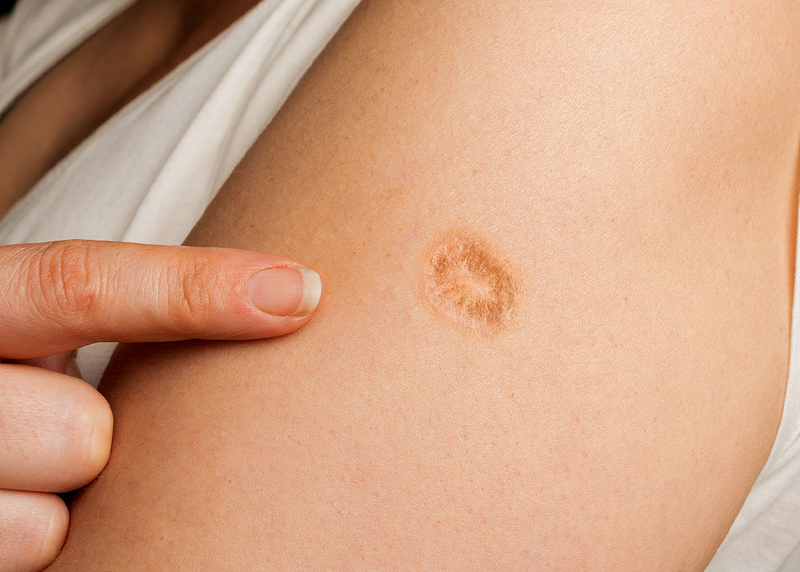When doing an online search for information about aspartame, the website “Safety of Aspartame” immediately comes up as the first sponsored site offering information about the popular artificial sweetener found in Diet Coke and other “zero sugar” products.
“More than 100 studies, 200 scientists, 90 countries all saying the same thing,” the website boasts, “Aspartame is safe.” The site then goes on to say that for over four decades, the U.S. Food and Drug Administration (FDA) has confirmed with six separate reviews that aspartame is safe for human consumption.1
Yet recent news outlets report that the United Nation’s World Health Organization (WHO) plans to update their risk assessment on the sweetener, labeling it as a possible carcinogen. WHO officials will also be reviewing the acceptable daily intake of aspartame and dietary exposure assessment. Results are expected to be released on July 14, 2023.2
FDA Stance on Aspartame: “Safe for the General Population”
According to the FDA website:
Scientific evidence has continued to support the FDA’s conclusion that aspartame is safe for the general population.
The FDA is responsible for evaluating and regulating the safety of prescription drugs and vaccines, as well as for ingredients added to food products. The U.S. regulatory agency states that aspartame is one of the most studied food additives in the human food supply, citing studies on the effects of reproductive and nervous systems, carcinogenicity and metabolism.3
Under guidelines expected to be released next week, aspartame will be listed as “possibly carcinogenic to humans” by the International Agency for Research on Cancer (IARC), a branch of the WHO. The decision was made as the final ruling after a meeting of external experts analyzed all published evidence.
The WHO committee on food additives known as JECFA (the Joint WHO and Food and Agriculture Organization’s Expert Committee on Food Additives), will also review and release its findings on the same day. Sources close to IARC say that listing aspartame as a possible carcinogen is intended to motivate additional research.4
FDA Initially Refuse to Approve Aspartame Due to Concern About Neurological Disorders
Like many other products produced by pharmaceutical companies, aspartame has a conflicting history. American pharmaceutical company GD Searle first attempted to get aspartame FDA licensed in 1973—failing by a 3-2 vote. At the time, independent scientists alleged the artificial sweetener could cause neurologic disorders and some said the company’s safety testing was below standard.
The Huffington Post reported that the a toxicologist from the FDA testified in Congress that aspartame can cause brain tumors and brain cancer:
The FDA’s own toxicologist, Dr. Adrian Gross told Congress that without a shadow of a doubt, aspartame can cause brain tumors and brain cancer and that it violated the Delaney Amendment, which forbids putting anything in food that is known to cause cancer. According to the top doctors and researchers on this issue, aspartame causes headache, memory loss, seizures, vision loss, coma and cancer. It worsens or mimics the symptoms of such diseases and conditions as fibromyalgia, MS, lupus, ADD, diabetes, Alzheimer’s, chronic fatigue and depression.5
FDA Appointee Pulled Political Strings to Get Aspartame Licensed
As Ronald Reagan was sworn in as President of the United States in 1981, the CEO at GD Searle, Donald Rumsfeld, was part of Reagan’s transition team. During this time, a new FDA commissioner, by the name of Arthur Hayes, was also appointed.5 GS Searle then reapplied for aspartame’s FDA licensure, but the panel upheld the original 3-2 vote ban. Hayes then installed a sixth member on the commission causing the vote to become deadlocked. As commissioner, Hayes broke the tie in aspartame’s favor. Hayes, a pharmacologist, had no previous experience with food additives prior to his appointment to the FDA.6
In 1985, Monsanto (the company who is also linked to glyphosate and DDT), purchased GD Searle which held the patent for aspartame. Rumsfeld reportedly received a $12 million bonus.5
Aspartame Linked to Cancer Risk in Humans and Mice
Since that time, several other country’s food safety agencies have reviewed aspartame. Last year, an observational study in France found that among 100,000 adults, those who consumed larger amounts of artificial sweeteners, including aspartame, had slightly elevated cancer risks.4
In the early 2000s, the Ramazzini Institute in Italy reported that some cancers in mice and rats were linked to aspartame. The study included thousands of rats given ranges of aspartame doses. The rats given aspartame had higher levels of malignant tumors in multiple organs. This occurred at even low doses of aspartame that would be considered acceptable daily intake levels by U.S. and European health authorities.
Many of the scientists who disputed the Institute’s findings were funded by industry interests such as the American Beverage Association, Ajinomoto, an aspartame supplier, and the Calorie Control Council. Last month, a group of authors from the Institute published a new paper confirming and reinforcing their previous findings.2
Food Safety Expert Calls for Ban on Aspartame in the U.K.
In 2020, a leading food safety expert in Europe called on the government of the United Kingdom to ban the artificial sweetener. Erik Millstone, PhD, professor of science policy at the University of Sussex, challenged the government to explain why it failed to ban aspartame when the European Food Safety Authority published an assessment of risks demonstrating that 16 of 21 studies indicated aspartame could cause adverse effects at modest dose levels.6
The global revenue of artificial sweeteners is expected to increase by $10.7 billion in a span of five years, from 2023 through 2028. The total revenue is estimated to reach $34.1 billion in 2028.7
Monsanto Owns the “Deadly Neurotoxic Drug Masquerading As An Additive”
Aspartame is still owned by Monsanto, under the brand name NutraSweet. In addition to diet sodas, it is also found in other no sugar products like Jell-O, sugar free gum, children’s medicines, and Crystal Light and is 200 times sweeter than table sugar.7
The website U.S. Right to Know8 links dozens of studies on potential health risks linked to the artificial sweetener including cancer, cardiovascular disease, Alzheimer’s disease, seizures, stroke, dementia, gut dysbiosis, mood disorders and headaches. Despite being used in products to combat obesity, aspartame is tied to weight gain. It is also believed that part of the structure of aspartame known as a methyl ester, converts into formaldehyde in the body.
Some of the top researchers who study aspartame highlight dangers that occur as aspartame liberates free methyl alcohols in the body. This leads to chronic methanol poisoning which affects the dopamine system of the brain, thus causing addiction.8
Dr. Betty Martini, founder of Mission Possible International, works with doctors worldwide to remove aspartame from food, drinks, and medicine. According to Dr. Martini, aspartame has brought more complaints to the FDA than any other additive on the market. She has stated, “[Aspartame] is a deadly neurotoxic drug masquerading as an additive.”5
If you would like to receive an e-mail notice of the most recent articles published in The Vaccine Reaction each week, click here.
Click here to view References:1 Safety of Aspartame. July 1, 2023.
2 Landman K. The WHO is about to declare aspartame can cause cancer. Here’s why you should listen. VOX July 1, 2023.
3 U.S. Food and Drug Administration. Aspartame and other sweeteners in food. May 30, 2023.
4 Rigby J, Naidu R. WHO’s cancer research agency to say aspartame sweetener a possible carcinogen- sources. Reuters June 29, 2023.
5 Genet R. Donald Rumsfled and the strange history of Aspartame. Huff Post Jan. 6, 2011.
6 Vowles, N. Calls for world’s most popular artificial sweetener to be banned in UK under incoming Brexit powers. University of Sussex Nov. 12, 2020.
7 Malkan S. Aspartame: decades of science point to serious health risks. U.S. Right to Know July 3, 2023.
8 Statistica. Revenue of the artificial sweeteners market worldwide from 2018 to 2028.














3 Responses
Sat next to a lady on a flight recently who had a huge drink container that she was replacing the contents of continuously as she drank from it. We started talking and she told me she was a recovering alcoholic who was 18 yrs sober. As I watched her, I realized she was drinking Diet Coke and I thought to myself ‘her new addiction’. We talked about that and she said she knew she was addicted to the soda but it was better than alcohol. Made me sad for her ☹️
FIGHT CLUB. Looks like the cost benefit vs risk liability analysis is finally stacking up in the consumers favor. Nearly sixty years and a few billion provable negative health effect instances later. Aspartame was discovered in 1965. Human cost and possible safety advisement bulletins which may follow are relative to the profit these substances brought. We do not forgive. We do not forget. Expect us.
The very last place anyone should turn for product safety advisement is the government. Even when I was a wee lad, wise elders taught me why to never choose the diet sugar packets and go for the real sugar instead. People have literally lived their entire lives, and then died, before the mechanisms of government acknowledged what has been common knowledge; diet sugars do more harm than good. Phenylketonurics labeling was not enough? WHO is desperate to reclaim credibility. Their credibility is ruined for eternity and beyond. DO NOT TRUST.
Next up, real butter is really better for you and those other substances you’ve been consuming, the near butter and like butter, all the dangerous chemical laden oils and hydrolyzed additives which are basically msg analogs, well, do the math. Milk is a big deal you know, to this day there is no labeling requirement for conventional milk. The manufacturers often place more aspartame and real sugars in milk to cover the sour, than is present in your average soda pop. Factory bovines are teet shocked to the tune of 2x and 3x milk production compared to natural organic and stress free harvesting.
Rule of thumb is if the product claims reduced sugar or diet labeling, that is more dangerous for you than drinking and smoking combined if they used diet sugars to get there. As for milk, trust The Cornucopia Institute and read their milk and egg score cards, on account of the USDA having sold out all credibility to industrial agricultural interests quite some time ago. Regulation standards for sale. Also trust the Organic Eye group, a spin off of Cornucopia. USDA organic labeling is basically worthless and there is not enough resources at the FDA to police the new ‘contains genetically modified ingredients’ labeling. Corporations are already cheating and only placing that label on products when they get caught. Trust in the ‘non gmo verified’ labeling, because that is the most reliable non governmental standard in wholesome food production today.
‘Like many products produced by pharmasuetical companies’ LOLPMSL! ‘Food safety experts and scientists.’ ROFLMAO for real 4 ever! ‘Food safety agencies.’ ROFLCOPTER! Stop making me laugh so hard with the one liners! Adventures of the faux scientists whom just started paying attention. Problemo? Y4Umadbro? They sold it, you bought it. Have an extra portion, because you can’t pay us to consume that trash. If you don’t know, now you know.
Many of have know ……..since the beginning that this was basically Poison…….and people were getting addicted to it. I have a dear friend that was addicted to Diet Soda and putting substitutes into her Ice Tea. I tried to warn her…..she didn’t buy it and wouldn’t read any Real Research I sent her. She’s had Cancer twice…..and I can’t say…….the Substitute caused it…but now she is on Anti-depressants. and Anti- Pycnotic Drugs. Known her for 50 yrs. – and she was so normal before all the Chemicals. Breaks my heart.